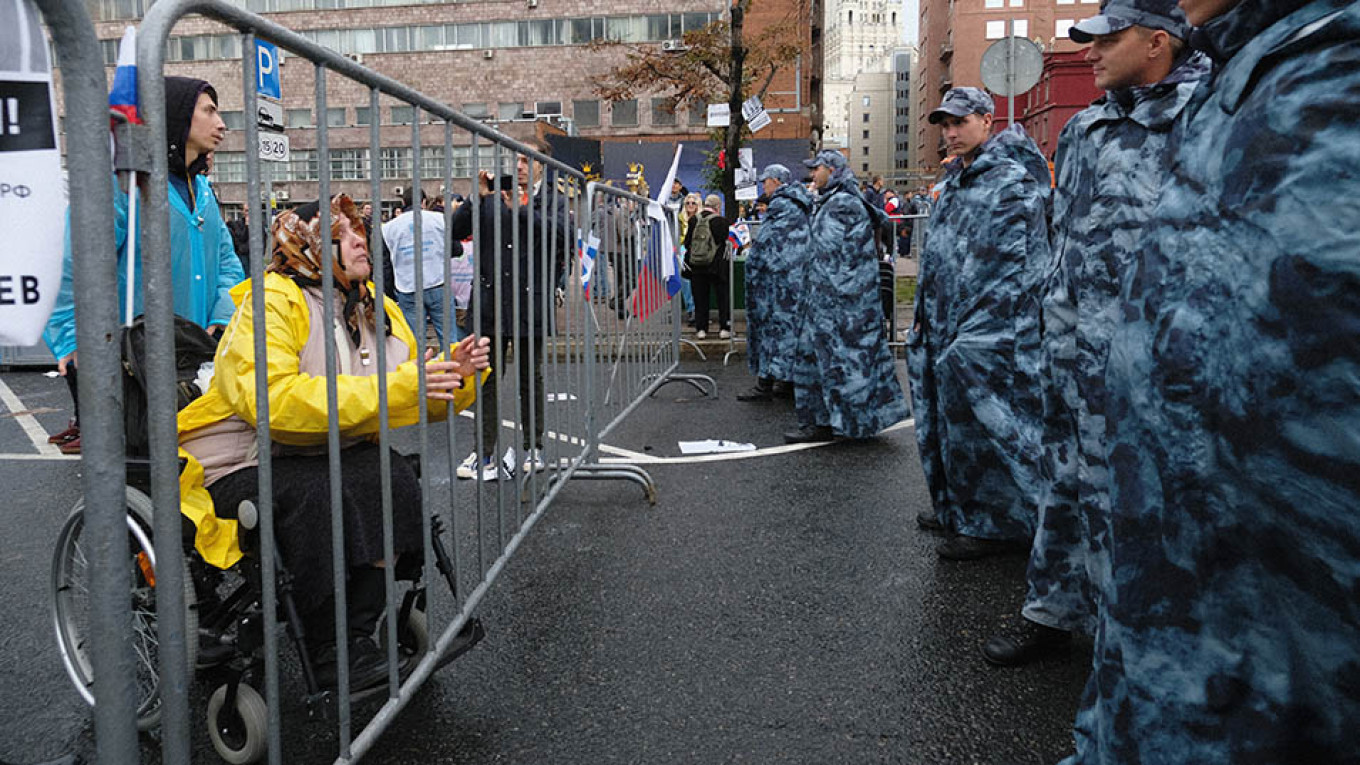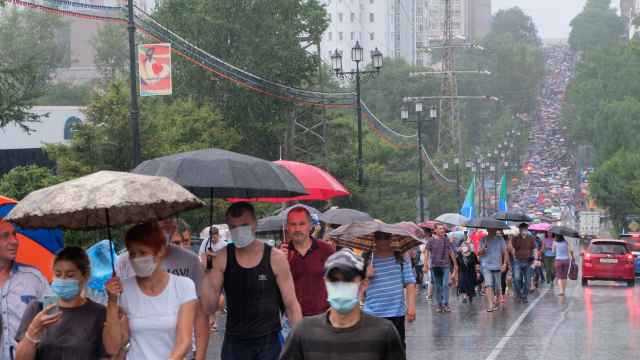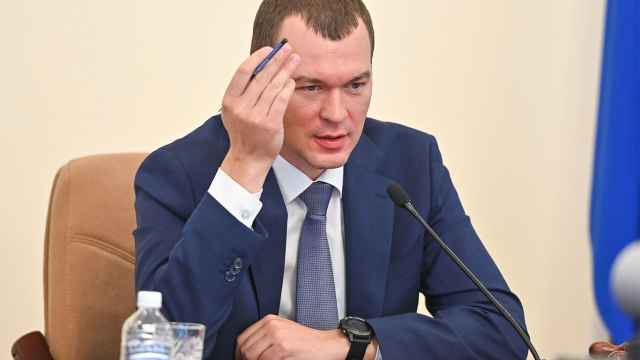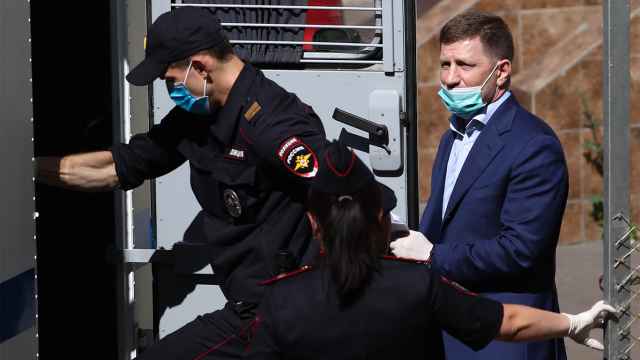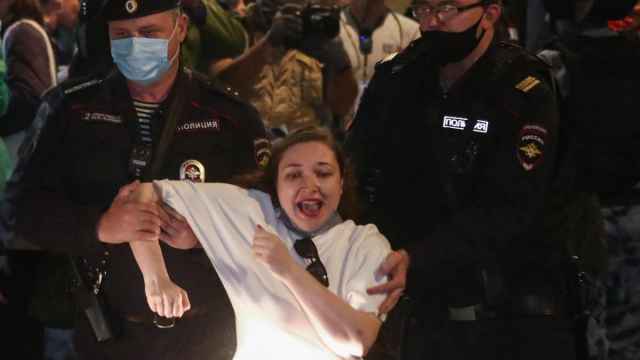The Kremlin on Tuesday shrugged off five weeks of street protests in support of free elections in Moscow, saying the situation had not warranted comment from President Vladimir Putin and voicing strong support for the tough police response.
The demonstrations over a planned election for the Moscow city legislature in September have turned into the biggest sustained protest movement in Russia since 2011-2013, when protesters took to the streets against perceived electoral fraud.
Police have briefly detained over 2,000 people, launched criminal cases against around a dozen people for mass disorder, handed short jail terms to almost the entire entourage of opposition politician Alexei Navalny, and used force to disperse what they said were illegal protests.
On Saturday, and despite the crackdown, around 60,000 people took to Moscow's streets for what a monitoring group called Russia's biggest political protest for eight years.
However, Putin has yet to comment on the unrest and the Kremlin's comments Tuesday were its first.
"We do not agree with those many people who call what is happening a political crisis," Kremlin spokesman Dmitry Peskov told reporters in answer to a question.
"Protests happen in many countries of the world. They are provoked by specific issues," he said, pointing to demonstrations in Europe, where Russian state media often focus on protests in France by the so-called "yellow vests".
Video footage of how Russian police have dispersed protests has sometimes stirred anger among Russians who believe the authorities have used excessive force.
'Firm action'
But Peskov said tough police action at the rallies had been justified. Individual cases of police excess as well as alleged violence by protesters against police were being looked into, he said.
"We believe firm action by law enforcement to curb public unrest was absolutely justified," said Peskov, adding that he believed the police were fulfilling their duty to uphold law and order.
The focus of protesters' anger is a prohibition on a slew of opposition-minded candidates, some of whom are allies of Navalny, from taking part in the September election in Moscow, which is seen as a dry run for a national parliamentary election due in 2021.
Authorities say the opposition candidates failed to collect enough genuine signatures to register. The excluded candidates say that is a lie and insist on taking part in a contest they believe they could win.
The ruling United Russia party's popularity rating is at its lowest since 2011 and Putin's own personal rating has also declined due to discontent over falling living standards.
However, at well over 60%, it is still high compared to many other world leaders. Putin, who first came to power in 1999 and is now 66, won re-election last year on a landslide with a six-year term that only ends in 2024.
A Message from The Moscow Times:
Dear readers,
We are facing unprecedented challenges. Russia's Prosecutor General's Office has designated The Moscow Times as an "undesirable" organization, criminalizing our work and putting our staff at risk of prosecution. This follows our earlier unjust labeling as a "foreign agent."
These actions are direct attempts to silence independent journalism in Russia. The authorities claim our work "discredits the decisions of the Russian leadership." We see things differently: we strive to provide accurate, unbiased reporting on Russia.
We, the journalists of The Moscow Times, refuse to be silenced. But to continue our work, we need your help.
Your support, no matter how small, makes a world of difference. If you can, please support us monthly starting from just $2. It's quick to set up, and every contribution makes a significant impact.
By supporting The Moscow Times, you're defending open, independent journalism in the face of repression. Thank you for standing with us.
Remind me later.


